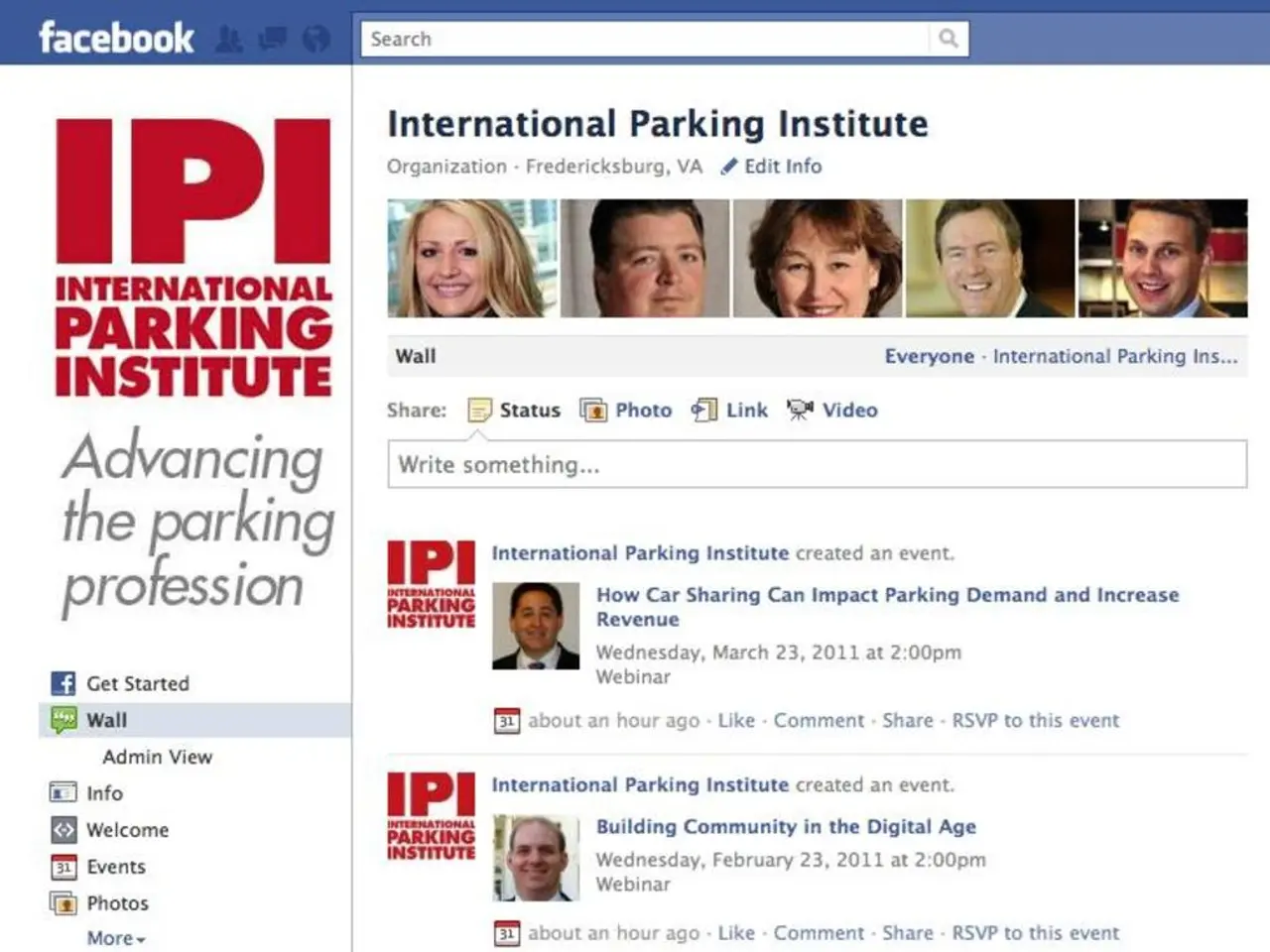Social Media Impact on Employment Recruitment and Job Searching?
In today's digital age, social media has become an integral part of the recruitment landscape, with 84% of companies using platforms like LinkedIn, Instagram, and Twitter to find potential candidates [1]. However, the use of social media in hiring also raises several ethical concerns, particularly when it comes to privacy, data protection, and fairness.
One such concern is the use of anonymous Instagram Story viewer tools by recruiters to sift through applicants. These tools often bypass privacy controls, which can be seen as a violation of the applicant's privacy [2]. Employers must ensure that any tools used do not infringe on applicants' rights to privacy and data protection, and comply with data protection laws such as the EU's General Data Protection Regulation (GDPR) [3].
Another ethical concern is the potential for bias in the hiring process. The use of such tools may lead to unfair hiring decisions based on an applicant's personal life or beliefs [4]. Employers should ensure that hiring decisions are based on professional qualifications and not personal biases discovered through these tools.
Transparency is also key in the hiring process. Employers should be transparent about the methods used to assess applicants to maintain ethical standards and avoid eroding trust between the employer and potential employees [5].
To maintain a professional online image, job seekers are advised to critically consider what they publicly disclose on social media, regularly audit their posts to ensure alignment with career goals, and keep personal accounts private [6]. Using good quality images, maintaining consistent branding across all social media, and engaging with the industry by sharing relevant articles and insights can also enhance one's online image presence [7].
Leveraging Instagram Stories to display snippets of one's work or projects can help job seekers gain attention in the industry they are targeting [8]. An updated LinkedIn profile can help candidates showcase their skills and attract recruiters [9]. Keeping personal profiles private is a way to minimize unwanted attention and scrutiny [10].
By following these guidelines, employers can maintain ethical standards in their hiring processes while avoiding potential legal and reputational risks. Recruiters should limit their evaluation to professional, public, job-related materials and information, and avoid drawing conclusions based on personal posts which do not express the professional capabilities of a candidate.
[1] Recruiting Daily (2020). The State of Recruitment Marketing Report. Retrieved from https://www.recruitingdaily.com/reports/the-state-of-recruitment-marketing-report-2020/ [2] Fottrell, R. (2019, March 20). Employers are using Instagram to vet job candidates. Here's what you need to know. MarketWatch. Retrieved from https://www.marketwatch.com/story/employers-are-using-instagram-to-vet-job-candidates-heres-what-you-need-to-know-2019-03-20 [3] European Commission. (2016). General Data Protection Regulation (GDPR). Retrieved from https://ec.europa.eu/info/law/law-topic/data-protection/data-protection-eu_en [4] Kutner, M. (2018, July 17). How employers are using social media to vet job candidates. The New York Times. Retrieved from https://www.nytimes.com/2018/07/17/business/how-employers-are-using-social-media-to-vet-job-candidates.html [5] Society for Human Resource Management. (2018, May 1). Social Media and Recruiting: Best Practices. Retrieved from https://www.shrm.org/resourcesandtools/hr-topics/talent-acquisition/pages/social-media-and-recruiting-best-practices.aspx [6] Glassdoor. (2019). 5 Social Media Mistakes That Could Sabotage Your Job Search. Retrieved from https://www.glassdoor.com/blog/5-social-media-mistakes-sabotage-job-search/ [7] LinkedIn. (2020). 10 Tips for Building a Strong Personal Brand on LinkedIn. Retrieved from https://www.linkedin.com/pulse/10-tips-building-strong-personal-brand-linkedin-career-expert/ [8] Fottrell, R. (2019, March 20). Employers are using Instagram to vet job candidates. Here's what you need to know. MarketWatch. Retrieved from https://www.marketwatch.com/story/employers-are-using-instagram-to-vet-job-candidates-heres-what-you-need-to-know-2019-03-20 [9] Glassdoor. (2020). How to Optimize Your LinkedIn Profile for Job Searching. Retrieved from https://www.glassdoor.com/blog/how-to-optimize-your-linkedin-profile-for-job-searching/ [10] Glassdoor. (2019). 5 Social Media Mistakes That Could Sabotage Your Job Search. Retrieved from https://www.glassdoor.com/blog/5-social-media-mistakes-sabotage-job-search/
- The use of social media platforms like LinkedIn, Instagram, and Twitter for career purposes raises ethical concerns about privacy and data protection, particularly when anonymous tools are used to sift through applicants' posts.
- Employers must ensure that any tools used to assess candidates do not infringe on their rights to privacy and data protection, and comply with data protection laws such as the EU's General Data Protection Regulation (GDPR).
- To maintain a professional online image, job seekers should critically consider what they publicly disclose on social media, regularly audit their posts to ensure alignment with career goals, and keep personal accounts private.
- By being transparent about the methods used to assess applicants, employers can maintain ethical standards and avoid eroding trust between the employer and potential employees.
- In the digital age, leveraging social media for career advancement, such as displaying work or projects on Instagram Stories, updating LinkedIn profiles to showcase skills, and engaging with the industry, can enhance one's online presence and attract recruiters. However, maintaining personal profiles as private can help minimize unwanted attention and scrutiny.




